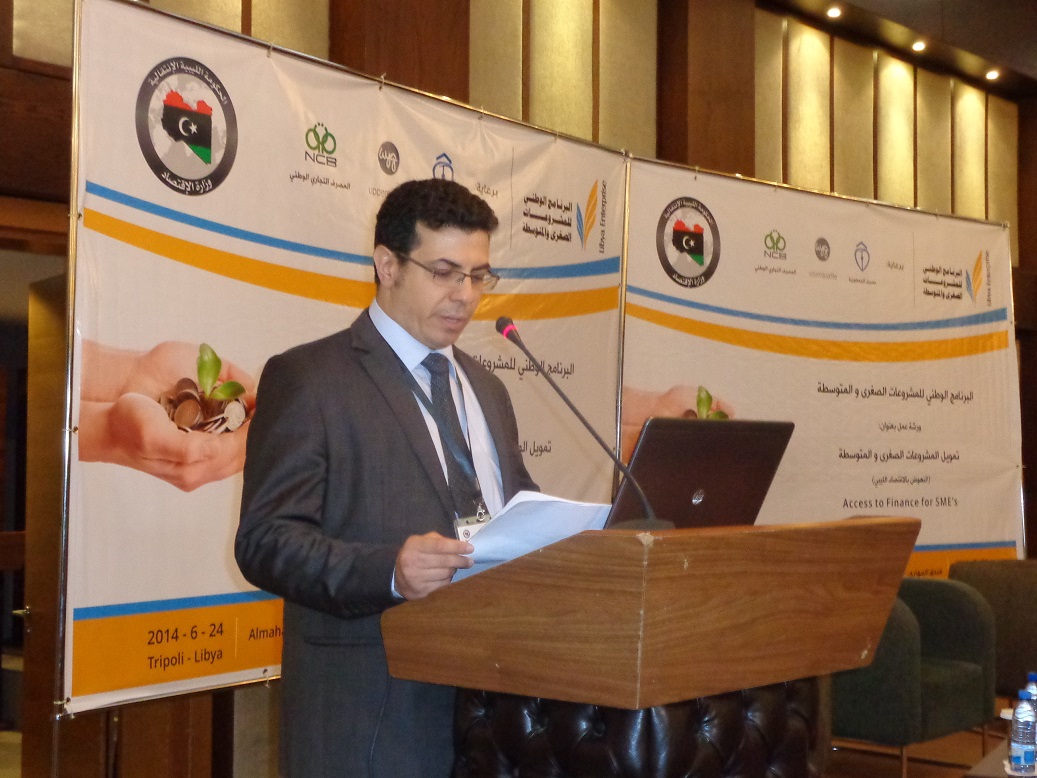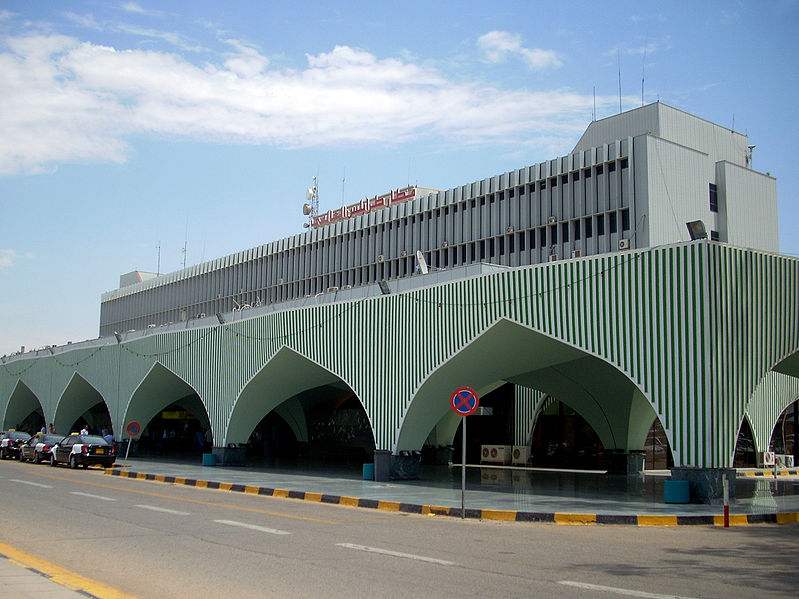By Ayman Amzein and Moutaz Ali.
Benghazi, 26 June 2014:
The Libya Herald visited various polling stations across the city of Benghazi yesterday . . .[restrict]to get a first-hand look at voter turnout for the historic elections for the House of Representatives (which is almost universally being called “Parliament” across Libya) and talk to residents about the democratic process.
Visiting the polling station located at Yousif Buker School, in the Benghazi area of Fuwayhat, station manager Salah Shehoumi explained that out of an estimated 5,850 registered voters for the polling station, 1,645 had turned up by 3 pm. He expected, with the anticipated increase in voters coming in the evening, that voter turn out would be high at his station.
Shehoumi said that they experienced a few minor problems, such as encountering errors in voters’ registration information. Also, a few voters incorrectly came to the Fuwayhat polling station and had to be re-directed to the correct station where they were registered.
A number of journalists and TV channels were present to cover the elections there. There were no international observers, however.
One voter named Ali Zaidi enthusiastically told this newspaper that he cast his vote, voting for both general list and women’s list candidates.
Another voter said that he voted because it was his national right. “It is our hope that this parliament will be better than the General National Congress,” he stated. “Also, by electing this parliament, it ends the GNC’s term and gives legitimacy to a new body.”
Yet another voter told said that he had voted “in order to correct the situation in the country and because the GNC did nothing for us.” He added that he voted for a candidate based on the candidate’s CV and not because of his known affiliation with any party.
The Libya Herald made some enquiries into the most popular candidates and indications showed that the most likely winner among the female candidates was Amal Mohamed Baayu. Among the male candidates in general list, there was no consensus on the most likely winners.
Benghazi will have the highest number of members in the parliament: 16 men and 4 women.
No security breaches were reported at this particular polling station despite the absence of any obvious security personnel. A source from the Benghazi Medical Centre told this paper, however, that an attack had happened in an area near to a polling station. The attack, which was carried-out by unknown assailants, was on a security patrol of the Joint Security Room, in which five persons were injured.
Next, the Libya Herald spoke with the head of Sakina Bint El-Hussein polling station, located in the area of Al-Salmani Al-Gharbi. He said that turnout for the elections, until 2pm, was about 35 percent of the 1,123 registered voters. He added that, in his opinion, the turnout for polling would witness an increase late afternoon and before closure time at 8pm.
He described the turnout as being weak due to lack of knowledge on the voter’s side, especially among young people, about many of the candidates. The turnout was lower than that for the GNC elections. The head of the polling centre said that people had become negative and disillusioned after witnessing the performance of the GNC.
He explained that there were four polling stations inside the centre, two for men and two for women. As to security, he pointed out that the centre was located in a residential area, adding that they had two security guards. No security breaches had happened in the centre.
The newspaper then paid a visit to Rayat Al-Istiqlal polling station in the Benghazi district of Hay Salam. As of 1 pm, the voter turnout there had reached 72 in the men’s polling station out of the registered 312 voters. Turnout among female voters was much lower, with only 38 of 365 registered voters casting their votes at this particular polling station.
Head of the polling centre Mansour Mohamed put this down in part to the high temperatures and because election day was near to the start month of Ramadan, explaining that people were busy getting geared up for it. He added that he expected polling numbers to increase as the day went on, as had been the case in previous elections.
Mohamed mentioned that he was pleased that the security situation was good. “No security breaches were reported,” he said, explaining that security guards were present right from the start of the polling day. “Things are going well from a security point of view!”
He added that Benghazi High National Elections Commission officials were in constant contact throughout the day by phone, informing them of what was happening, in order to reassure them of the progress of the elections there and provide any support needed during the day. He noted that observers, journalists and media were present. Only three candidates’ representatives were present at this polling station.
On the Libya Herald’s visit to the Gar Younis polling station, Walid Hamid Abdulsalam, its director, explained that of 1,410 registered voters, around 197 had voted by 1 pm. He expected only another 400 or so to arrive by the end of the day, given the location of the centre. Gar Younis is in close proximity to some fighting. Even while speaking with Abdulsalam, explosions could be heard in the distance. He expected fear to keep some voters from turning out. He also mentioned that there had not been enough publicity about the elections or the candidates themselves.
Abdulsalam pointed out that despite the appointment of security personnel there was no security present at his polling station. He said that the absence of security had led to a shortage of staff to work the station, especially of female staff. He mentioned concerns about the sorting process in the evening in the absence of security and in light of the centre’s close proximity to bombing that was being carried out.
The Libya Herald spoke to a few voters at this station. One said that he gave his vote to a candidate based solely on his CV and the information that had been circulated about his lack of party affiliation and love for country. Another candidate said that he had voted with the hope that this new elected body would be able to improve the country and correct the mistakes that had been made. He also said he chose his candidate based on the candidate’s CV.
At the Bil Aoun polling station between Fuwayhat and Hawari, director Ali Mohamed Al-Bergthy told Libya Herald that 214 of 1152 registered voters had come as of 12 pm. But his personal expectations were that around 50 percent would vote, acknowledging that it did appear the turnout would be lower than that for GNC elections.
There were seven security guards stationed at this centre.
One voter at the Bil Aoun station explained that he should have voted at the Gwarsha station. “An extremist group has blocked the road to the centre and is inspecting people who go there, so I came to this centre instead.”
Another voter said that he voted specifically to remove the GNC, whose term had expired, and to replace it with a new, legitimate elected body. He said his hope was that people would have learned from their mistakes of electing GNC members and would choose the best candidates for the House. He also praised the decision to move the House of Representatives to Benghazi.
[/restrict]











